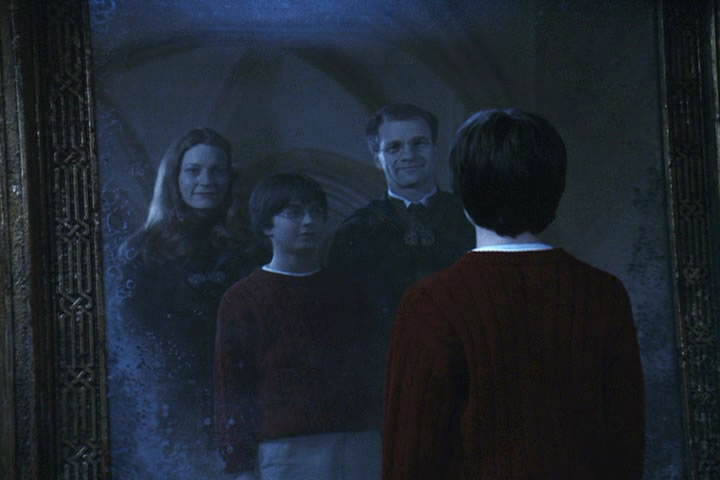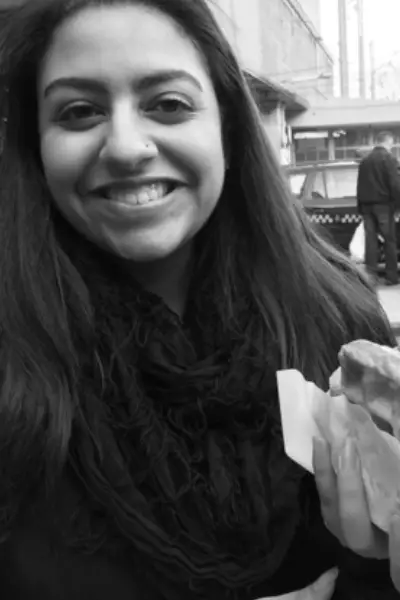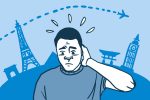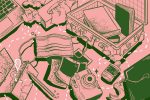A Reflection on Mirrors
I’m involuntarily living a life without mirrors and I (mostly) miss them.
By Sofia Rivera, Simmons College
In Lewis Carol’s “Through the Looking Glass,”Alice discovers an entirely new, magical world on the other side of a mirror hanging from her living room wall.
Her discovery is strikingly similar to the plot of an episode of the Nickelodeon sensation “Rugrats” entitled “Mirrorland.” Two sources of fine art reflecting on the same idea got me thinking: What is it about mirrors?
We glance at them every chance we get, gaze into them as we try to perfect the wings on our eyeliner, stare at them as we give ourselves pre-date pep talks and brush our teeth. We examine ourselves face-on, from the side, turn around and crane our necks, and if you’re really into yoga, maybe you look into them upside down. (I don’t know what yogis do.)

So when I moved into my pre-furnished apartment in Spain and found that there was no full-length mirror, I was mildly horrified. How would I see my entire self at once?
I can see my head and shoulders in the bathroom mirror, my face super close-up in the portable magnifying mirror I brought from home (yes, my suitcase was overweight for my transatlantic flight, but I have my priorities), and if I back up far enough I can see most of my head, my torso and part of my legs in the mirror by the door. When I’m really desperate I can get a ghostly glimpse of myself in the glass doors of my armoire, but that’s really just a tease.
I used to look in each mirrored surface every morning and try to combine the disassembled fragments of myself into one cohesive image, but jigsaws are a lot more difficult to assemble without concrete pieces. The process of trying to figure out what I look like has gotten fairly exhausting, so for better for worse, I now walk out the door with little to no idea.
It’s a fun guessing game: Do I look like the before picture or the after picture? The perfectly-lit red carpet picture, or the candid, “Stars: They’re Just Like Us” picture? I could either look like a well-adjusted human who takes time to get ready each morning, or the one who forgot to pay her water bill, lost her hairbrush and was a contestant on “What Not to Wear.” How can I know?
As a result, depending on the day and my mood I either feel like an A-list celebrity with all the confidence in the world, or like Amy Schumer falling at the feet of Kimye (except in my case it wouldn’t be a planned prank).
I’ve heard that some people take down or cover up their mirrors as a way to lose weight or improve their body image, but maybe that only works if the removal is an intentional choice, because I don’t feel new and improved, just clueless. Personally, instead of avoiding your image until you’re happy with your body, I prefer embracing your body until you’re happy with your image.
Another strike against mirrors is my unreflective life has made me more prone to paranoia. On the days when I’m feeling more like Amy Schumer mid-plummet, any innocent glance is enough to send me into a guessing spiral. Should I not have worn sneakers with this skirt? Is my dress tucked up? Did I forget to put on pants? (Two of these have happened IRL).
As the semester wears on I have started to care less about trying to see my entire reflection, but I think my complacency has more to do with a feeling of defeat than a sense of liberation. At this point, it’s just less anxiety-inducing to not care than it is to scurry around the apartment searching for reflective surfaces.
When I tried to complain to my dad about my mirror shortage, he pointed out that mirrors only provide a reflection of ourselves anyway—a backwards image—meaning that we have some inverse semblance of what we look like, but we’ll never see ourselves as the world does.
I know his metaphysical reassurance was supposed to make me feel better, but it actually exacerbated my crisis.
What do I truly look like?!? I will literally never know.
Once in seventh grade, my science teacher told us that we never actually touch anything— the electrons surrounding the atoms of our hands are repelled by the electromagnetic field of the object we’re trying to touch.
Even as a ten year old (how old are seventh graders?) I knew this was pretty messed up, because a) Yes, I do touch things seriously what are you talking about? and b) Even if this is scientifically true on some technical level, why would you tell this to a group of seventh graders?
Obviously, the rest of the day was filled with hormone-fueled classmates rebooting the long-forgotten “Are you uncomfortable yet?” game, and insisting that they were “never actually touching you,” no matter how close they got. Science ruins lives.
In my mind, this technicality is equally as absurd as the mirror loophole. Sure, I’m never touching anything or seeing my real self. But in my perception of the world, I touch something every time I get close enough to it, and I see my face every time I look in the mirror.
I remember once I broke a hand-held mirror (still living off those seven years bad luck, plus I accidentally walked under a ladder last week, so add another seven to that) and saw that the other side of the pieces of glass were painted a gross shade of teal.
Mirrors are only smooth surfaces that reflect light instead of absorbing it. When you look in the mirror and are met with your backwards twin, what you’re seeing is your own light bouncing back at you. If you’ve ever needed reason to believe that you’re beautiful, isn’t being a source of light enough? Since light is usually invisible, the rays reflecting off the glass surface of a mirror and back to our eyes is kind of a miracle— mirrors are magical!
Speaking of magical mirrors, in “Harry Potter and the Sorcerer’s Stone” (outing myself as a Harry Potter nerd oops), anyone who looks into the Mirror of Erised sees their deepest desire. So, according to Dumbledore, “The happiest man on earth would be able to use [it] like a normal mirror, that is, he would look into it and see himself exactly as he is.”
What does this mean? That Dumbledore is the best, obviously. But also that we can see whatever we want to see when we look in the mirror. I don’t think mirrors hinder positive self-image; I think they enable it. So, coming to you from the other side of the looking glass (or at least the Atlantic), I beg of you: Don’t take your mirror for granted.

















